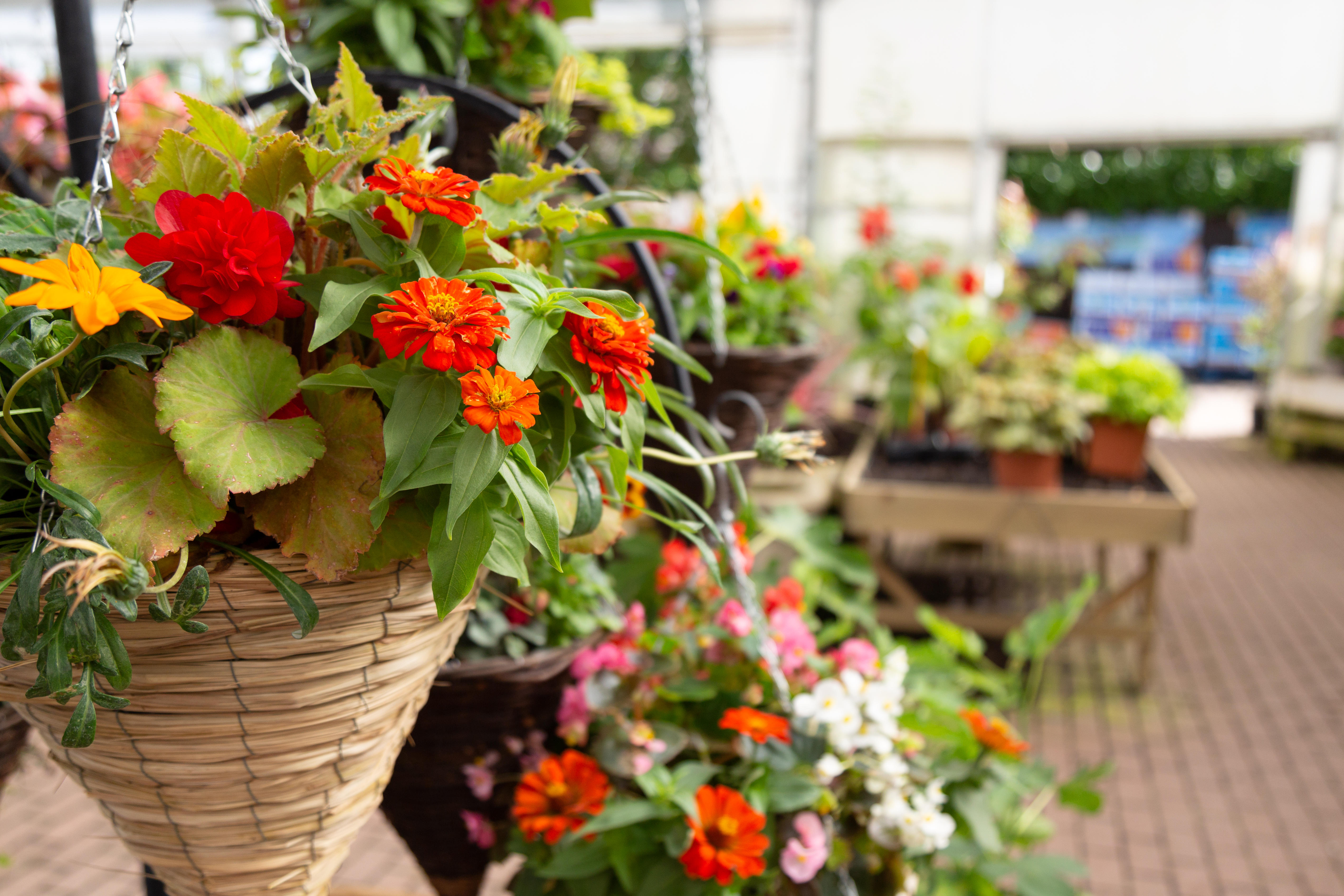Trial aims to reveal the secrets to beautiful hanging baskets
A new trial aims to reveal the best way to achieve beautiful hanging baskets without using too much water.


Hanging baskets are an integral part of gardens, parks and villages across the country, and this summer the RHS is determined to find out the best ways to keep them watered without going over the top, as it were.
People are keen for an answer, it seems, since a recent survey of 3,447 gardeners found that that as many as 75% respondents were keen to know more about watering hanging baskets and containers, while 80% were concerned about water use in their gardens, the RHS said.
Ten different watering techniques are being trialled over the next three months at the John MacLeod Field Research Facility, close to Wisley, to determine how to achieve dazzling blooms with as little water use as possible.
Hanging baskets are notoriously difficult to water since the majority of what is applied runs out of the bottom, although a previous study had suggested that baskets and containers can survive on a meagre teacup of water a day. To determine the truth the techniques to be trialled will be carried out on baskets of petunias. They include four drip irrigation systems, controlled by a timer, a soil moisture sensor and the amount of sunshine; two sub-irrigation system where water from a watering can is delivered to the roots instead of the soil surface, and four manual watering methods. The results are expected in October.
Janet Manning, Water Management Specialist at the RHS, said: ‘Hanging baskets are relied upon to provide much-needed splashes of colour in even the smallest of spaces but go through periods of wet and dry far quicker than other planting displays.
'The aim is to show gardeners that they don’t need to be saturated throughout the summer months and can survive on a minimum amount of water if applied correctly.'

National Gardens Scheme gardens to visit
A selection of gardens opening in aid of the National Gardens Scheme in the coming weeks shows off the variety
Exquisite houses, the beauty of Nature, and how to get the most from your life, straight to your inbox.

How wild potatoes could help spuds resist the deadly blight that caused the Irish Potato Famine
Scientists believe that genes from wild potatoes could help protect regular crops from the disease that caused the Irish famine.

Country Life Today: Britain's 10 hottest years, Tintagel's new bridge and how cathedrals are bringing their flocks a touch of the funfair
Our news round-up features a record-breaking day for tree planting, alarming data from the Met Office, weird and wonderful cathedral
